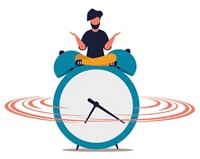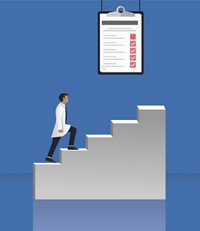Advertisement
Grab your lab coat. Let's get started
Welcome!
Welcome!
Create an account below to get 6 C&EN articles per month, receive newsletters and more - all free.
It seems this is your first time logging in online. Please enter the following information to continue.
As an ACS member you automatically get access to this site. All we need is few more details to create your reading experience.
Not you? Sign in with a different account.
Not you? Sign in with a different account.
ERROR 1
ERROR 1
ERROR 2
ERROR 2
ERROR 2
ERROR 2
ERROR 2
Password and Confirm password must match.
If you have an ACS member number, please enter it here so we can link this account to your membership. (optional)
ERROR 2
ACS values your privacy. By submitting your information, you are gaining access to C&EN and subscribing to our weekly newsletter. We use the information you provide to make your reading experience better, and we will never sell your data to third party members.
Career Tips
Zoomed out? Here’s how to manage expectations
by Brought to you by ACS Careers
August 2, 2020
| A version of this story appeared in
Volume 98, Issue 30

Remember when a videoconference was a rare occasion—something special that you looked forward to? Now, 4 months into working from home, the novelty has worn off. Things that were tolerable for a few days or weeks may no longer be as the pandemic stretches into months.
In the beginning, it was fun to peek into your colleagues’ homes and meet their children and pets. But now you’re tired of having to make yourself and your home camera-ready on a moment’s notice, and evening Zoom calls with family and friends feel like work meetings.
Videoconferences take more mental energy than phone calls or in-person conversations for several reasons. Since you’re not in the same physical space, you have to work harder to read body language and focus on multiple people and backgrounds. Connectivity lags and technical problems add to the frustration, and seeing yourself is a constant reminder that you are “on.”
So what can you do?
If you’re planning a meeting, don’t make videoconference the default. If you would have done it by phone in January, do that. Ask participants what they prefer—would video add to the quality of the interaction? If you decide on a videoconference, give people sufficient notice to prepare themselves and their workspace.
As the leader, you establish the tone for the meeting. Maybe you can set up a document or a few slides so that people have something to look at other than a group of talking heads. Have a good, professional photo in your profile, and don’t be afraid to turn off your video and show that. Unless there’s a solid reason, don’t call out those who choose not to use video. Schedule breaks, especially if it’s a longer meeting, and finish up a few minutes before the hour so you can stand and stretch before the next meeting starts.
Think twice before signing up for extra online activities. Not only have conferences moved online, but with no traveling required many more conferences, presentations, and other events are accessible with the click of a button. It can be enriching but also exhausting, so consciously choose how you are going to spend your time.
Resist the temptation to check email at all hours. Just because you can dash off a quick response doesn’t mean you should—you may set up an always-on expectation that will be hard to maintain.
You can also combat some of the “sameness” by setting specific times, places, and routines for work. Putting a definitive start and end to your workday will give you a mental break, even if the end is only closing a folder, or putting your work coffee mug in the sink and getting out the festive evening cup.
What we all have in common is that our lives have changed completely, in ways we never dreamed they would. As we learn how to work together, but separately, we’re all just doing the best we can.
Get Involved in the Discussion. The ACS Career Tips column is published in C&EN the first issue of every month. Send your comments and ideas for topics for columns to careers@acs.org.





Join the conversation
Contact the reporter
Submit a Letter to the Editor for publication
Engage with us on Twitter